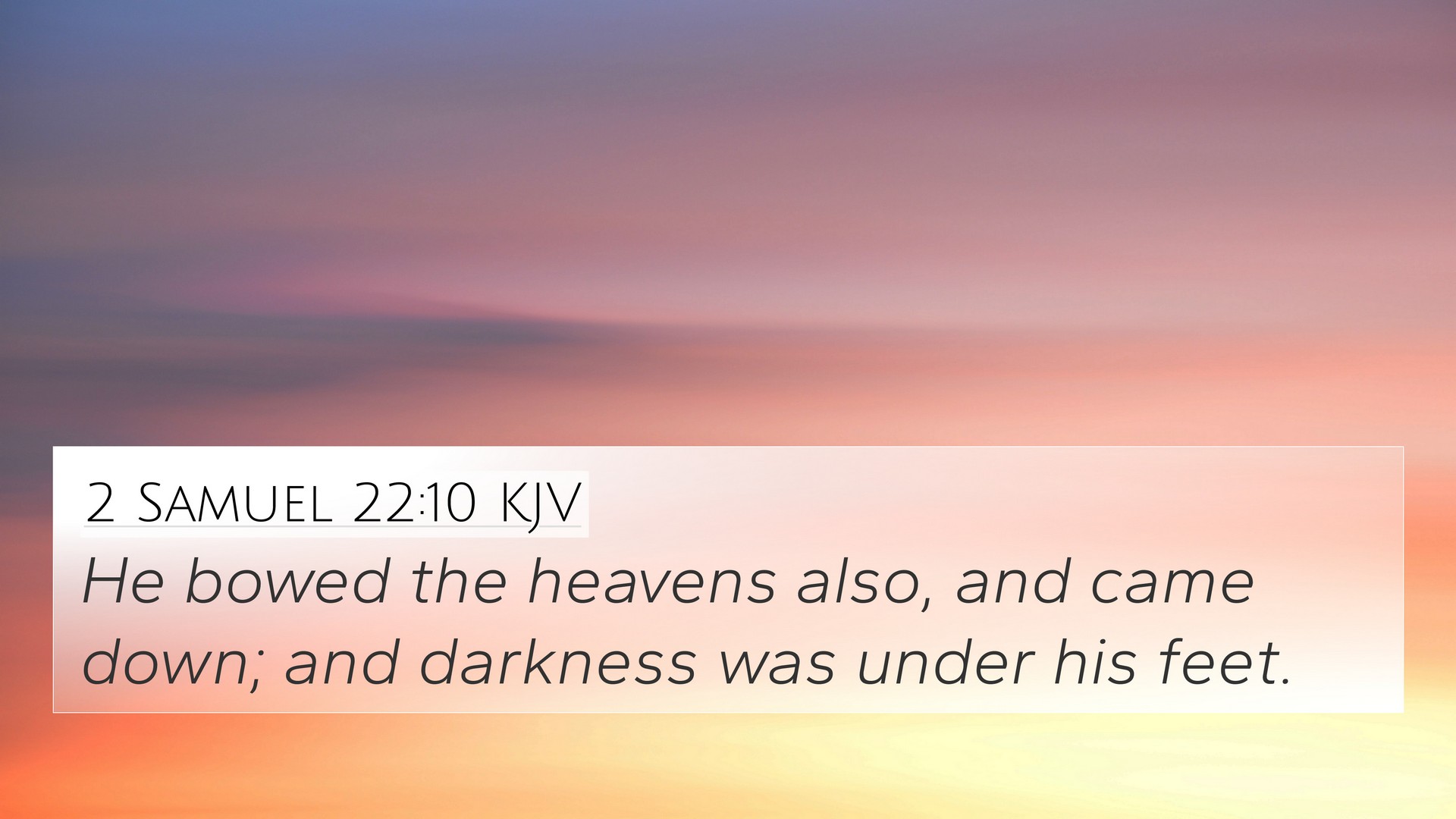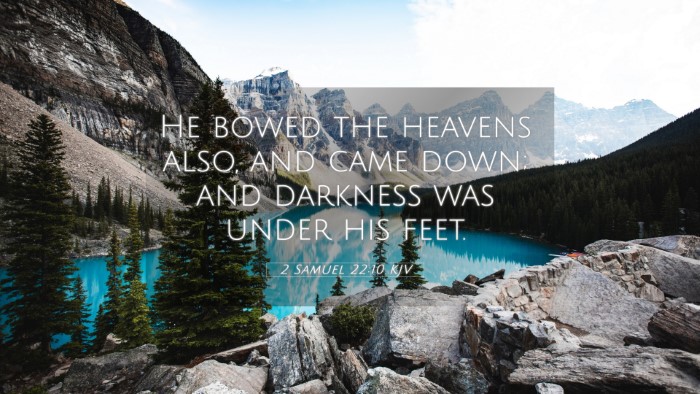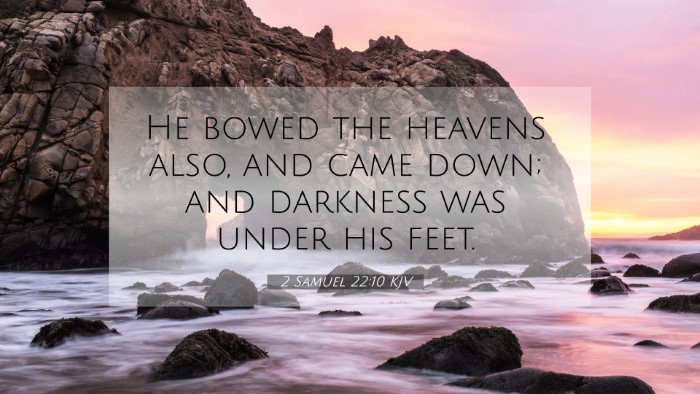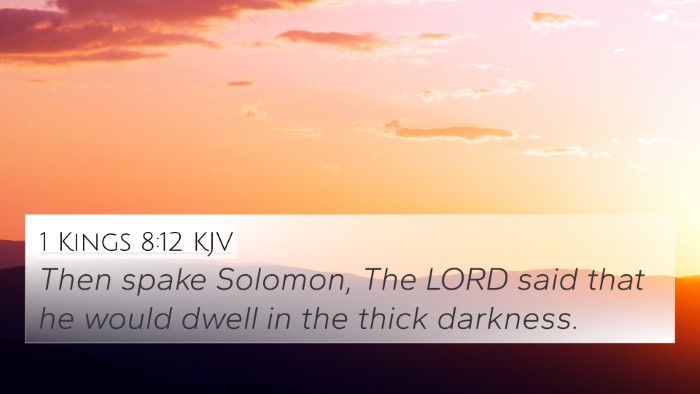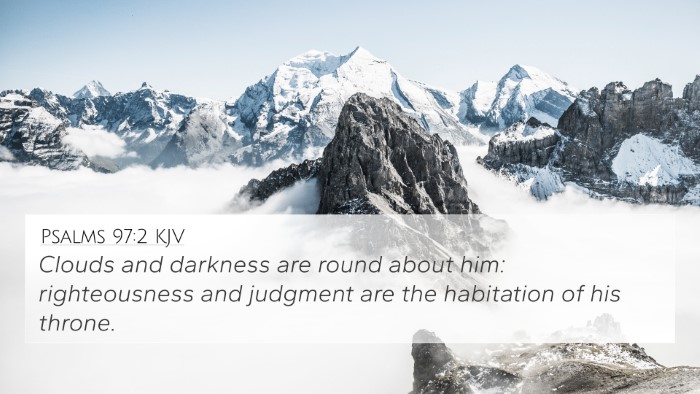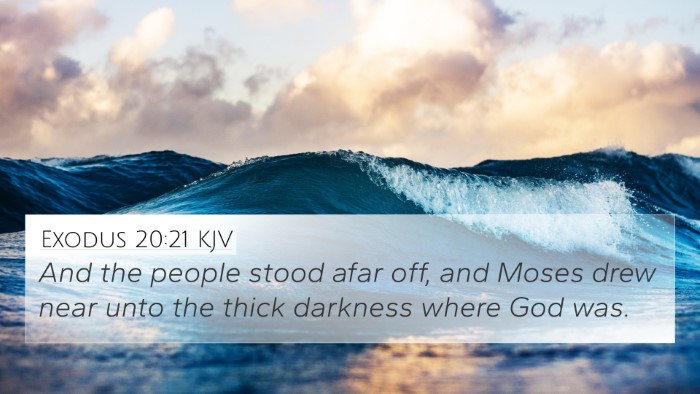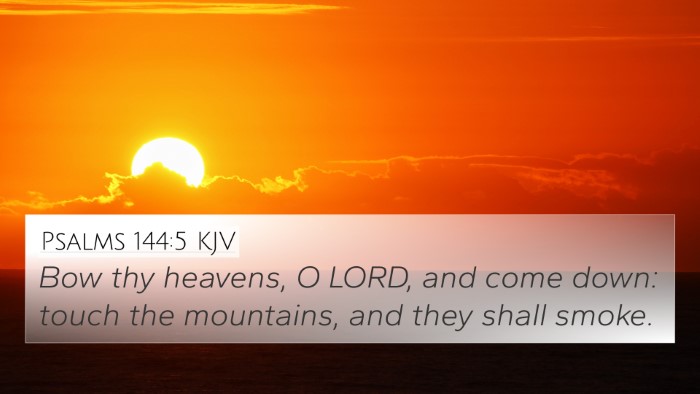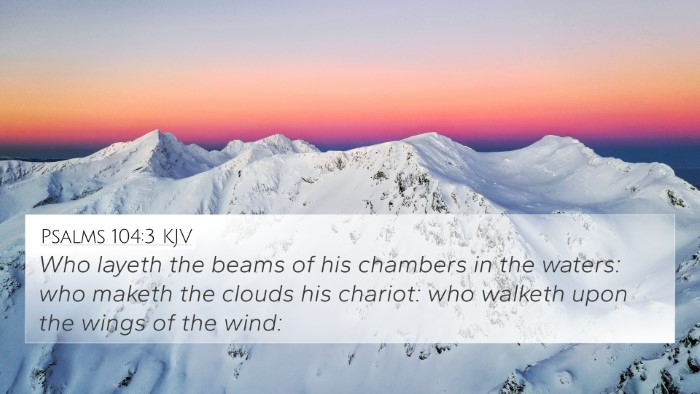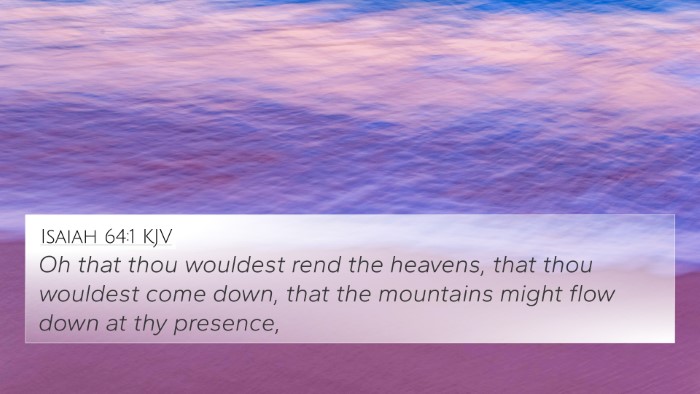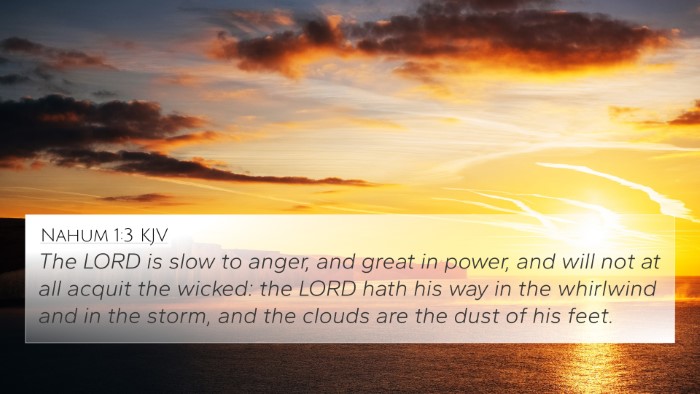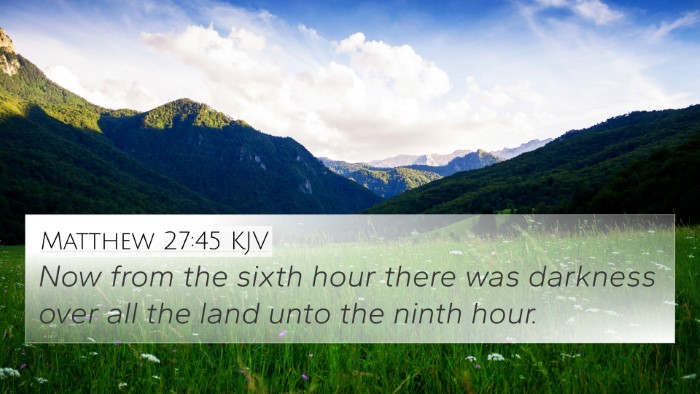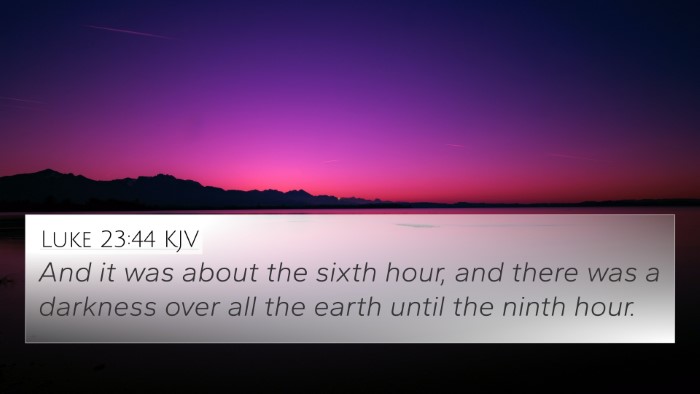Understanding 2 Samuel 22:10
Verse: "He bowed the heavens also, and came down; and darkness was under his feet." (2 Samuel 22:10)
Verse Context
The context of this verse is found in David's song of praise to God, reflecting on deliverance from adversaries. David recognizes the profound power and presence of God in times of trouble, illustrating how divine intervention transcends human understanding.
Meaning and Interpretation
This verse portrays the majesty and sovereignty of God, emphasizing His capability to intervene in the earthly realm. The imagery of God bowing the heavens and coming down signifies His readiness to aid those in need. Darkness under His feet denotes both a metaphor for trouble and the overpowering nature of God's presence over chaos and adversity.
Insights from Public Domain Commentaries
- Matthew Henry: Henry emphasizes that the act of God bowing the heavens illustrates His omnipotence and willingness to manifest His presence among His people, particularly in their distress.
- Albert Barnes: Barnes focuses on the metaphor of darkness, explaining that it symbolizes the challenges believers face. God’s descent signifies His imminent help when darkness threatens.
- Adam Clarke: Clarke expands on the concept of God coming down, interpreting it as a full embodiment of His mercy and aid, reinforcing the belief in divine providence in dire situations.
Thematic Connections
This verse connects with various themes throughout the Bible, emphasizing God's involvement in human affairs. Here are some key themes:
- Divine Presence: The assurance that God is near in times of trouble.
- Nature of God: Illustrating His omnipotence and omnipresence.
- Human Suffering: The recognition of tribulations and the darkness faced by believers.
Cross-References
2 Samuel 22:10 relates to several other scriptures that enhance its meaning through cross-references:
- Psalms 18:9-10: "He bowed the heavens and came down..." parallels David's expression of God’s intervention.
- Exodus 19:18: God's descending upon Mount Sinai in thick darkness reflects a similar authoritative presence.
- Psalms 144:5: "Bow your heavens, O Lord, and come down..." reinforces the theme of divine assistance.
- Isaiah 64:1: "Oh, that you would rend the heavens and come down..." appeals to God's readiness to intervene.
- Isaiah 19:1: Describing the Lord coming on a swift cloud signifies His power and presence affecting the earth.
- Revelation 1:7: The return of the Lord in clouds underscores His authoritative presence in divine judgment.
- Matthew 17:5: God speaking from a cloud at the Transfiguration parallels His active involvement in earthly matters.
Comparative Bible Verse Analysis
This verse invites a comparative analysis, linking it to passages concerning God’s deliverance and presence in both the Old and New Testaments.
For instance, exploring how the concept of God as a deliverer in Amos 9:3 aligns with God’s retreat from His people when they stray from Him, is crucial in understanding His faithfulness.
Tools for Bible Cross-Referencing
To deepen one's understanding, employing tools for Bible cross-referencing can be invaluable:
- Bible Concordance: Helps locate themes and related verses effectively.
- Bible Cross-Reference Guide: Assists in identifying connections between various scriptures.
- Cross-Reference Bible Study: A method to engage with multiple scriptures simultaneously, enhancing comprehension.
Practical Application
Believers can draw comfort from 2 Samuel 22:10, recognizing that God is their protector and helper in times of darkness. The metaphorical darkness can relate to personal struggles, societal issues, or broader existential crises, serving as a reminder of God's responsive presence.
Conclusion
In summary, 2 Samuel 22:10 serves as a powerful reminder of God's sovereignty and presence in the lives of believers. By examining this verse alongside its cross-references, one gains deeper insight into the biblical narrative of God's faithfulness and protection.
